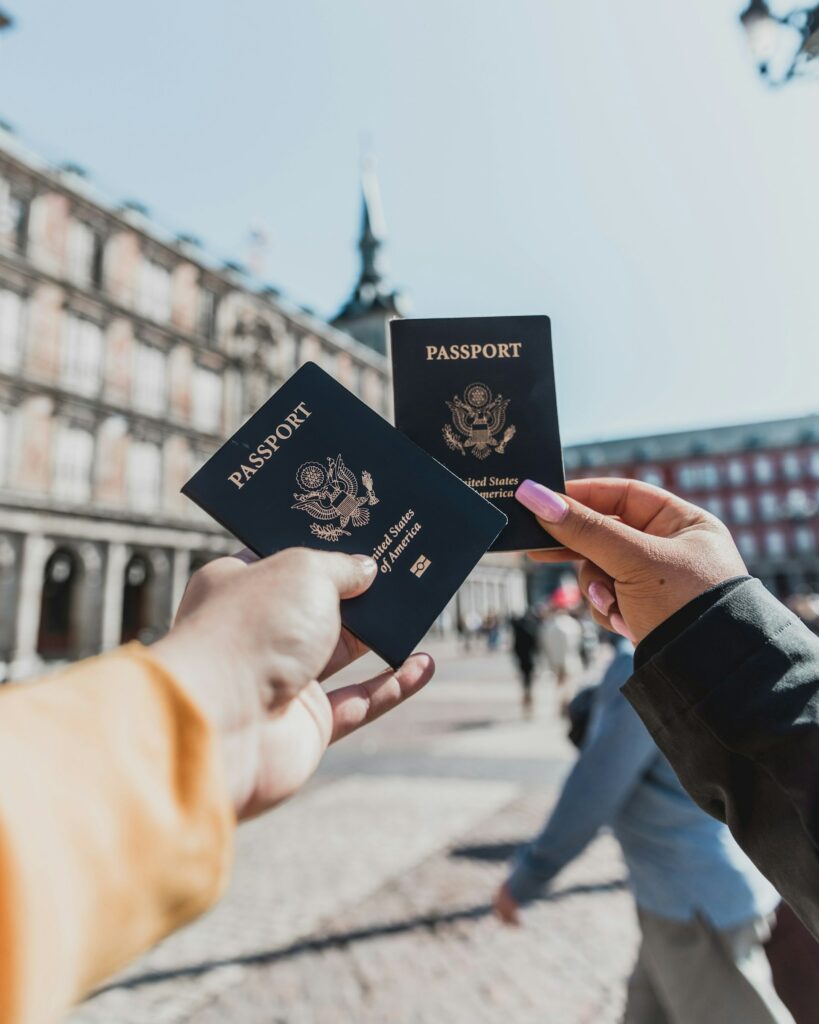So, you’re soaking up the sun or exploring far-flung locales when your passport decides to embark on its own adventure. It’s a game of hide and seek you didn’t sign up for, that’s for certain.
Losing your passport while travelling abroad can be an experience that pretty much ruins your holiday. It’s your primary form of identification and a vital document for international travel. How will you get home? Will you be arrested for not having a visa? Who might be travelling in your name?
Though these rhetorical, hypothetical questions are enough to cause panic even in those simply reading this article rather than going through the crisis first-hand, we’re here to assure you that losing your passport abroad isn’t the worst thing in the world. Here’s a step-by-step guide on what to do if you find yourself in this predicament.
Step 1: Stay Calm & Gather Your Thoughts
First and foremost, don’t let panic cloud your judgement. It’s essential to stay calm and composed. Take a few deep breaths and try to recall where you might have last seen your passport. Retrace your steps if possible, and check with any hotels, restaurants, or attractions you’ve recently visited.
Oh, and check your bag, pockets and your other hand. Always check that it’s not just in your hand…

Step 2: Report The Loss
If your passport is indeed lost, report it immediately to the local police. This is a crucial step, as it not only helps in the recovery process if someone finds it, but it also protects you from potential identity theft. Make sure to get a copy of the police report, as you’ll need it for the next steps. It’s also a good idea to note down the details of the officer handling your case, just in case you need to follow up.
Step 3: Contact The Nearest British Embassy Or Consulate
The next step is to get in touch with the nearest British Embassy, High Commission, or Consulate. They can provide you with an emergency travel document (ETD) to replace your lost passport. The ETD will allow you to leave the country you’re in and return to the UK, or continue on to your next destination if you’re on a multi-country trip.
Remember, their job is to help, so don’t hesitate to ask any questions or voice any concerns.

Step 4: Gather Necessary Documents
To apply for an ETD, you’ll need to provide certain documents. These include a passport photo, proof of your plans (like flight tickets), and a police report if available.
If you don’t have a copy of your passport, any form of identification will do. Yes, even that embarrassing driver’s license photo from the ’90s. If you’re having trouble gathering these, reach out to friends or family back home who might be able to help.
Step 5: Apply For An Emergency Travel Document
Once you have all the necessary documents, you can apply for an ETD. This can be done online, and the current fee is £100. The British Embassy or Consulate will then arrange an appointment for you to collect your ETD.
Make sure to check the opening hours and any necessary security procedures before you go, as both can be fairly unpredictable in far flung corners of the world.
Step 6: Inform Your Travel Insurance Provider
Don’t forget to ring up your travel insurance provider and fill them in on your passport’s disappearing act. They might be able to help with costs or provide further advice. It’s also worth checking if your policy covers any additional expenses you might incur, like accommodation or flight changes.
Read: Do I really need travel insurance?

Step 7: Replace Your Passport Once You’re Back In The UK
Once you’re back home, you’ll need to apply for a new passport. Fortunately, it’s simple to renew your British passport online, or at the Post Office, in person.
Remember, your lost passport will be cancelled when you report it, so even if it turns up, it won’t be valid for travel. The process can take a few weeks, so make sure to factor this into any future travel plans.
Is The Above Process For Losing Your Passport The Same In Every Country?
While the general steps for handling a lost passport are similar worldwide, the specifics can vary depending on the country. For instance, the process of reporting the loss to local authorities, the availability and response time of your home country’s embassy or consulate, and the requirements for obtaining an emergency travel document can differ.
In some countries, you might need to visit the embassy or consulate in person to report the loss and apply for an emergency travel document, while in others, these processes might be done online or via phone. The processing time for an emergency travel document can also vary.
Moreover, the assistance provided by travel insurance providers can differ based on their policies and the country you’re in.
Therefore, it’s always a good idea to familiarise yourself with the specific procedures and requirements of the country you’re visiting. This information can usually be found on the official website of your home country’s foreign affairs department or equivalent.
Remember, prevention is the best strategy. Always keep your passport in a safe place, and have photocopies or digital copies of your passport stored separately. This can expedite the process if your passport is lost or stolen.
The Bottom Line
Losing your passport abroad can be a stressful experience, but it’s not the end of the world. By following these steps, you can navigate this tricky situation with ease and continue your journey with minimal disruption. Safe travels!





